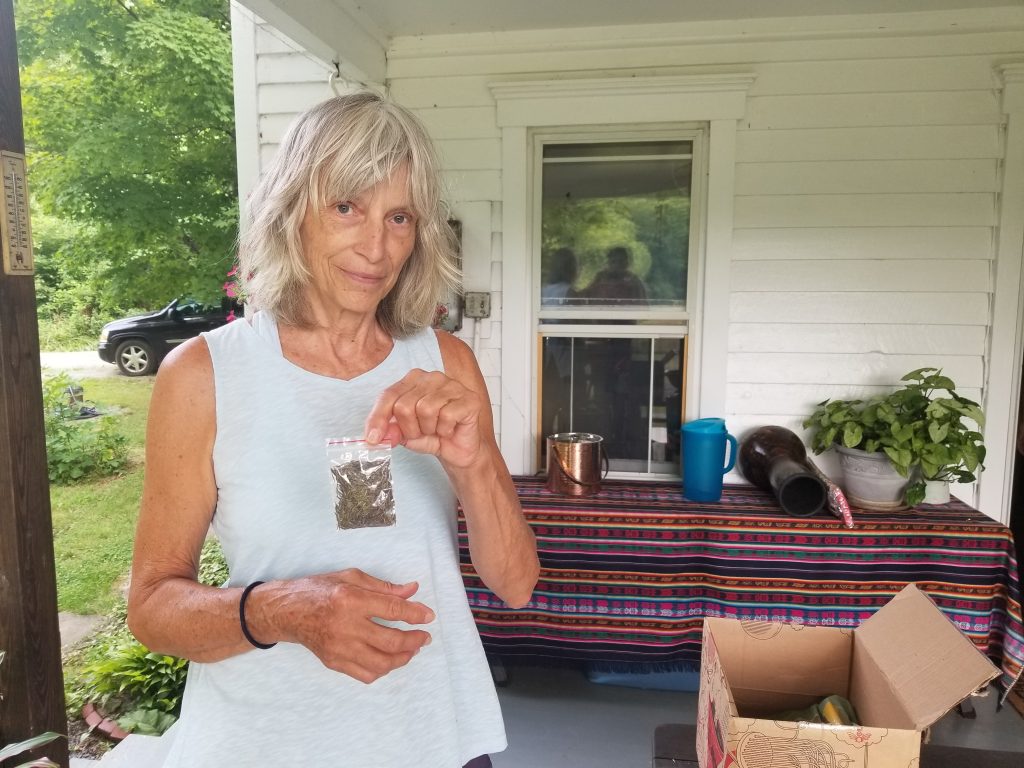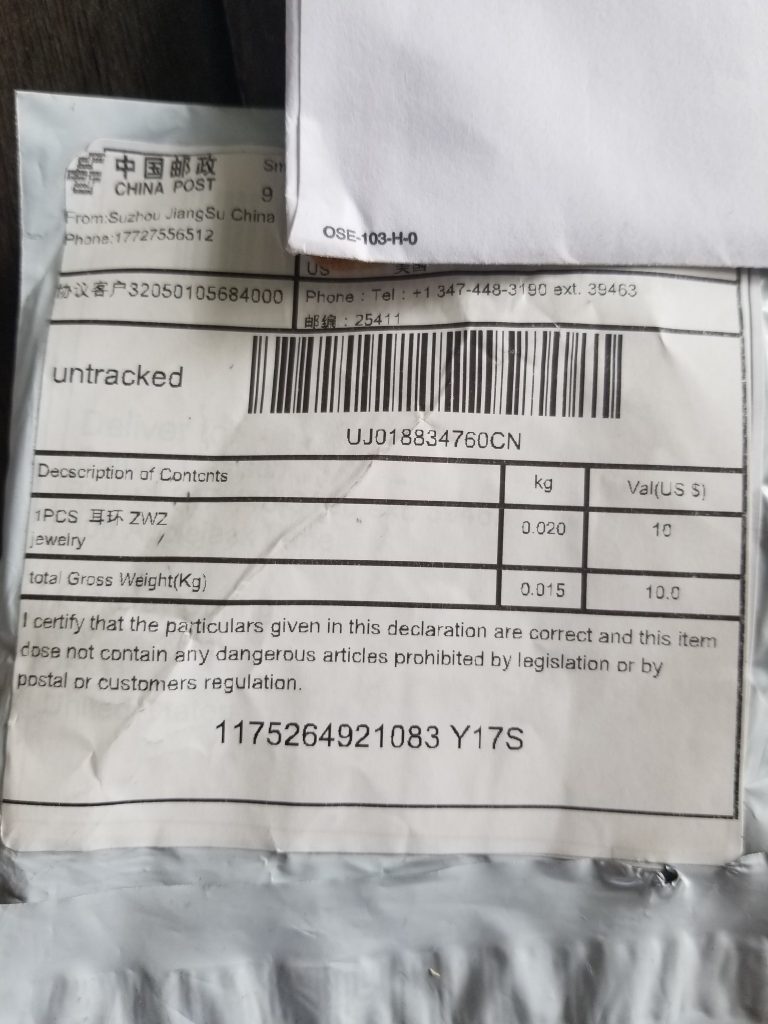About a month ago, Carol Caflisch, who lives in southern Morgan County, West Virginia, received a mystery packet of seeds from China.
“I had no idea what they were and there wasn’t much online about them at the time,” Caflisch said.
“They looked like large spinach seeds,” Caflisch said. “I wasn’t going to plant them. I just put the seeds aside, took a picture of the package and threw the package away.”
Since receiving her first unsolicited package of seeds from China, she has read news articles about the U.S. Department of Agriculture investigating these packages – which have been delivered to people in all 50 states.
“USDA is aware that people across the country have received suspicious, unsolicited packages of seed that appear to be coming from China,” the USDA said in a press release. “USDA’s Animal and Plant Health Inspection Service (APHIS) is working closely with the Department of Homeland Security’s Customs and Border Protection, other federal agencies, and State departments of agriculture to investigate the situation.”
Yesterday, Caflisch got her second package of seeds from China in the mail.
“These seeds look like large caraway seeds,” Caflisch said.
She said she reported the seeds to the USDA.
USDA investigators asked Caflisch whether she had ordered seeds online. She had — from legitimate retailers via Amazon earlier in the year.
“I guess they are trying to figure out how people in China figured out I was interested in seeds and are now sending me random seeds unsolicited,” she said.
Osama El-Lissy of the USDA’s plant protection program says that “we have identified fourteen different species of seeds, including mustard, cabbage, morning glory, and some herb seeds like mint, sage, rosemary and lavender.”
“And then there are other seeds like hibiscus and roses. This is just a subset we have collected so far.”
The USDA says that anyone who receives an unsolicited package of seeds to immediately contact their state plant regulatory official or APHIS State plant health director.
“Please hold onto the seeds and packaging, including the mailing label, until someone from your State department of agriculture or APHIS contacts you with further instructions. Do not plant seeds from unknown origins.”
“At this time, we don’t have any evidence indicating this is something other than a brushing scam where people receive unsolicited items from a seller who then posts false customer reviews to boost sales. USDA is currently collecting seed packages from recipients and will test their contents and determine if they contain anything that could be of concern to U.S. agriculture or the environment.”


